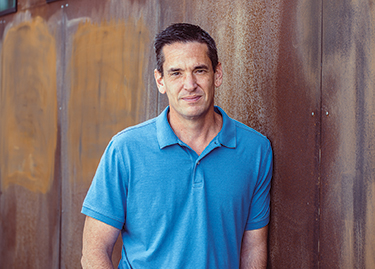Britt East, ’14, chronicles journey from pain to hope

Britt East
Growing up in the South during the 1980s, Britt East’s family “made it clear that everything about me was wrong.” He goes on: “My family … suffered without wisdom, steeped in denial and immersed in cycles of intergenerational trauma. Addiction. Abuse. Suicide. It’s a myth that all parents love their children, just something we like to tell ourselves.” The struggles he faced left an indelible imprint on his psyche and serve as the impetus for his helpful and hopeful book, “A Gay Man’s Guide to Life,” (Houndstooth Press).
East, ’14, who earned his EMBA from the Foster School of Business, is a Seattle-area author and public speaker who was inspired to present realistic ways for gay men to deal with homophobia and strive to improve and enjoy their lives. To get to this station in life, he has devoted more than two decades to personal growth and development experience using such methods as yoga, meditation, therapy, the 12 Steps, Nonviolent Communication and the Hoffman Process, a way of identifying negative behaviors, moods and ways of thinking that were developed during childhood.
The book—part memoir, part development manual—offers stories of empathy as well as no-nonsense approaches to living your best life: creating a family without merely mimicking the norms of a straight society, cultivating sustainable gay friendships, and finding lasting love in a world absorbed by hookup culture.
“Trying to expunge those parts of you resulting from years of sorrow and anguish is a losing game,” East writes. “But you can learn to trade your weapons for wisdom and alchemize your pain into loving kindness.”
“Sometimes,” East adds, “it can seem like the cards are so stacked against us as gay men that the best we can hope for is just to make it through another day. We all have the capacity to take the world by storm. But for this to happen, most of us need a plan, a clear sense of mission, vision and values.”
East continues to maintain strong connections to the University. He has been a longtime member of The President’s Circle as well as a strong supporter of the Meany Center for the Performing Arts. It’s clear the UW has been—and remains—a big part of his life.